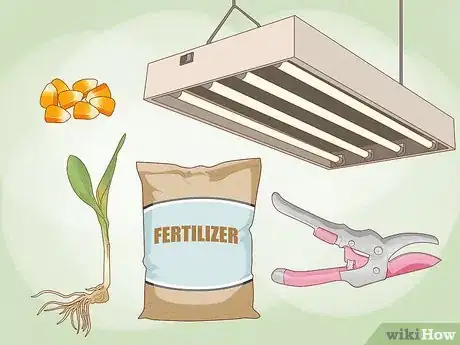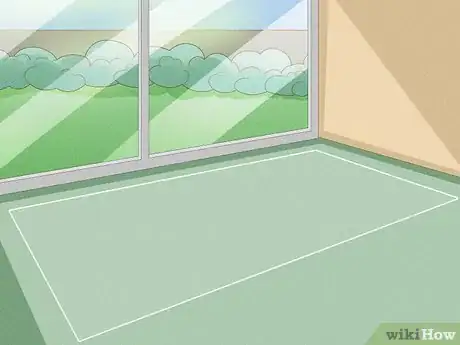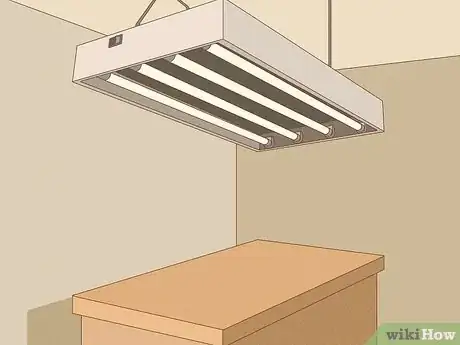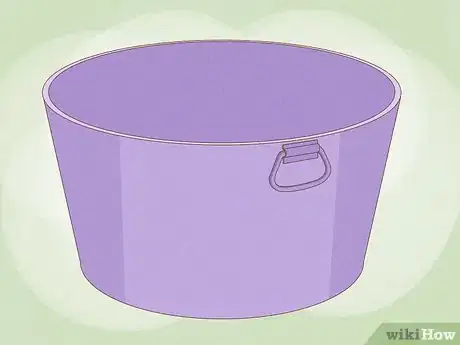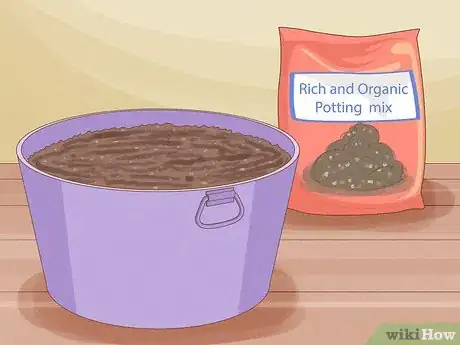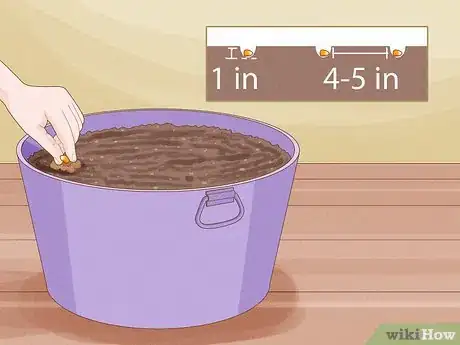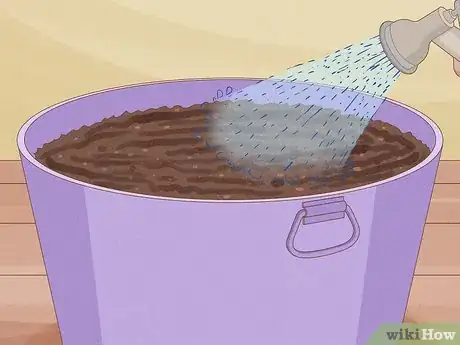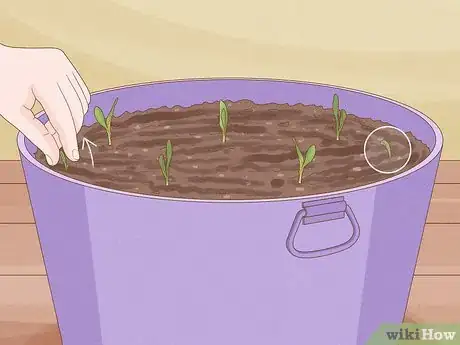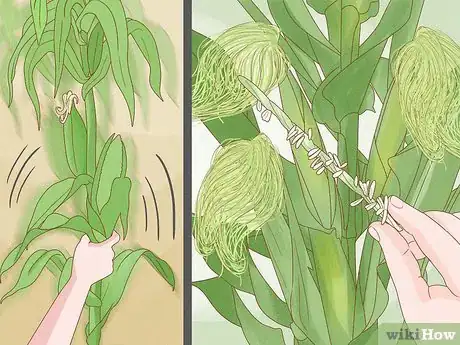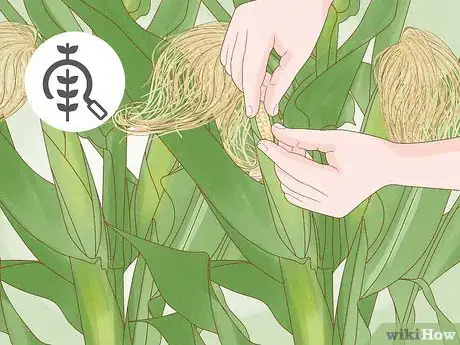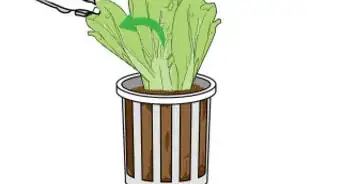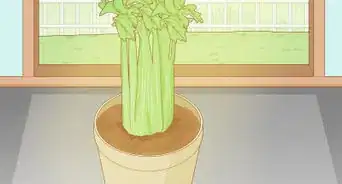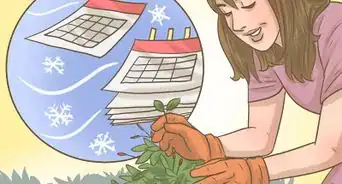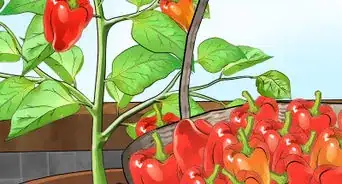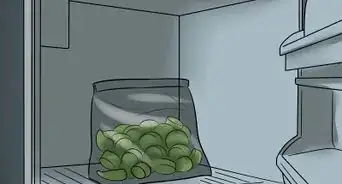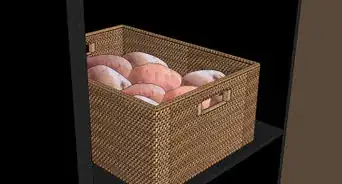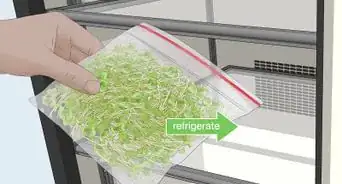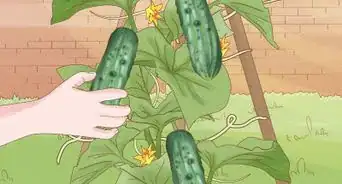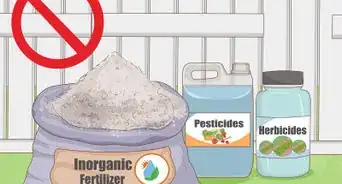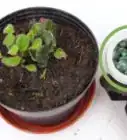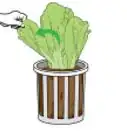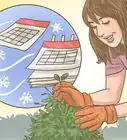X
wikiHow is a “wiki,” similar to Wikipedia, which means that many of our articles are co-written by multiple authors. To create this article, 15 people, some anonymous, worked to edit and improve it over time.
This article has been viewed 72,300 times.
Learn more...
Ideally, corn should be grown outdoors in full sun during the summer, but if your space or conditions don't permit it or you'd like to try something different, try growing corn indoors. It's an unusual houseplant, and you just might get a meal or two out of your efforts.
Steps
-
1Assemble the materials listed under "Things You'll Need".
-
2Choose the sunniest place you have indoors. Aim for a sunroom, large window, preferably facing south or west, or under a large skylight.Advertisement
-
3Supplement the light. Corn will generally take as much light as you can give it, so consider supplementing the light, especially if you're serious about getting corn out of this experiment. You may have to supplement the light if you don't have enough natural light. Try fluorescent bulbs.
-
4Choose a large container. Try a washtub or something of a similar size.
- As with any houseplant, protect the surface underneath. Use a large plant saucer between the container and the floor.
-
5Fill the container with soil. Use a rich potting mix with plenty of organic matter and nutrients. Optionally, add additional fertilizers according to package instructions.
-
6Start from seed. Plant seeds one inch deep in the soil, 4–5 inches (10.2–12.7 cm) apart.
-
7Water as necessary. Wait until the top of the soil dries out, and avoid watering so much that the roots are in standing water. Check for moisture before you water. Check at least weekly and remember that indoor containers will require less water than outdoor ones.
-
8Thin to four or five plants per large container. Choose the strongest growers and pull the rest.
-
9Help the pollination process. The best pollinator for corn is wind, and that's not available indoors. Instead, try gently shaking the plants as tassels start to appear. The tassels produce the pollen and the silk receives it. Each strand of silk corresponds to one kernel.[1]
-
10Harvest corn right when you plan to eat it. Corn is ready to harvest when a the juice from a kernel is milky, not clear. Other signs are brown silk but a green husk.[2] When you've determined that an ear is ready, snap it off the stalk with a twisting motion and cook it as soon as possible.
Advertisement
Community Q&A
-
QuestionMy corn plants are too big for my container. How do I transplant them to a larger container or outdoors?
 Community AnswerYou grab the plant by the stem, turn the container upside down, then gently hit the bottom of the container until the plant (with the roots) falls out. Then put the plant into a 12 inch hole and cover it with dirt.
Community AnswerYou grab the plant by the stem, turn the container upside down, then gently hit the bottom of the container until the plant (with the roots) falls out. Then put the plant into a 12 inch hole and cover it with dirt.
Advertisement
Things You'll Need
- Corn seeds
- A sunny location
- Artificial lighting as necessary
- Potting soil
- A large container
- Floor or surface protection
- Water
- Fertilizer (optional)
References
About This Article
Advertisement
